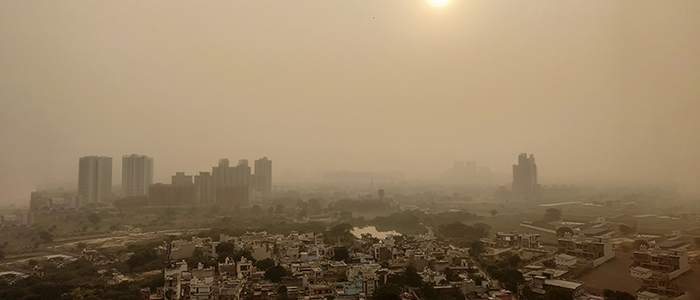The shutdown of the economy across India due to the pandemic has been critically painful for the masses. It has opened up fractures that we knew existed yet remained buried like a dirty little secret. This includes, of course, hunger, forced migration, and the general fragility of the economy. Nonetheless, the lockdown was probably necessary.
Alongside this disruption, it has also been a very fascinating experiment. It has taught us something about the relationship between the environment and the economy. As an example, in only a few days after the lockdown, particulate matter, which generally remains in the territory of 700 or 800 or 900 or even 1,000 during the peak of the smog in the winter, came down to a level of 7 – just 7. Of course, this came at the cost of a loss of jobs and livelihood for people, so it has taught us something about the nature of policy action. Such drastic measures are obviously unsustainable and very disruptive, and we should use this a learning to make sure that policies on the climate, on environment, are sustainable.
As an author and researcher in this space, I think this pandemic has provided an interesting opportunity to understand the impact of such disruptions on various aspects of energy and environment. What will this mean in terms of people taking public transport again? Will more and more people, especially in emerging countries like India, want to use private transport, like two-wheelers, instead of taking public transport, and therefore have an impact on energy consumption as well as emissions?
I think that this pandemic will also mean at the very personal level, we’ll have to change the ways of doing things. I think being an author is already a fairly lonely job. Doing things to keep ourselves mentally healthy even in isolation will become very critical.
In addition to this, now our meetings are mostly online. So I think some form of human interaction is lost in such online meetings. It’s harder to gauge the emotions and the perspectives of the person when the meetings are online, and also it creates a level of formality due to which we are unable to prod deeper in ways that we would if we were meeting in person. So I think as a researcher, this definitely has an impact on the way that I’m able to draw out information from the people I’m speaking to.
Also, I think that some of my best ideas that I used to get previously while doing other things – for example, driving a car or using the transit or having drinks with friends at a pub and talking about completely unrelated things – I don’t think I can do that anymore, and I think at least in the short run, this will impact the way I’m able to be very creative with communicating my ideas.
This pandemic will substantially change the way we do things, both in terms of the society at large, but also at a personal level. But I think it’s very critical for us to use this pandemic to leave behind a better world.


